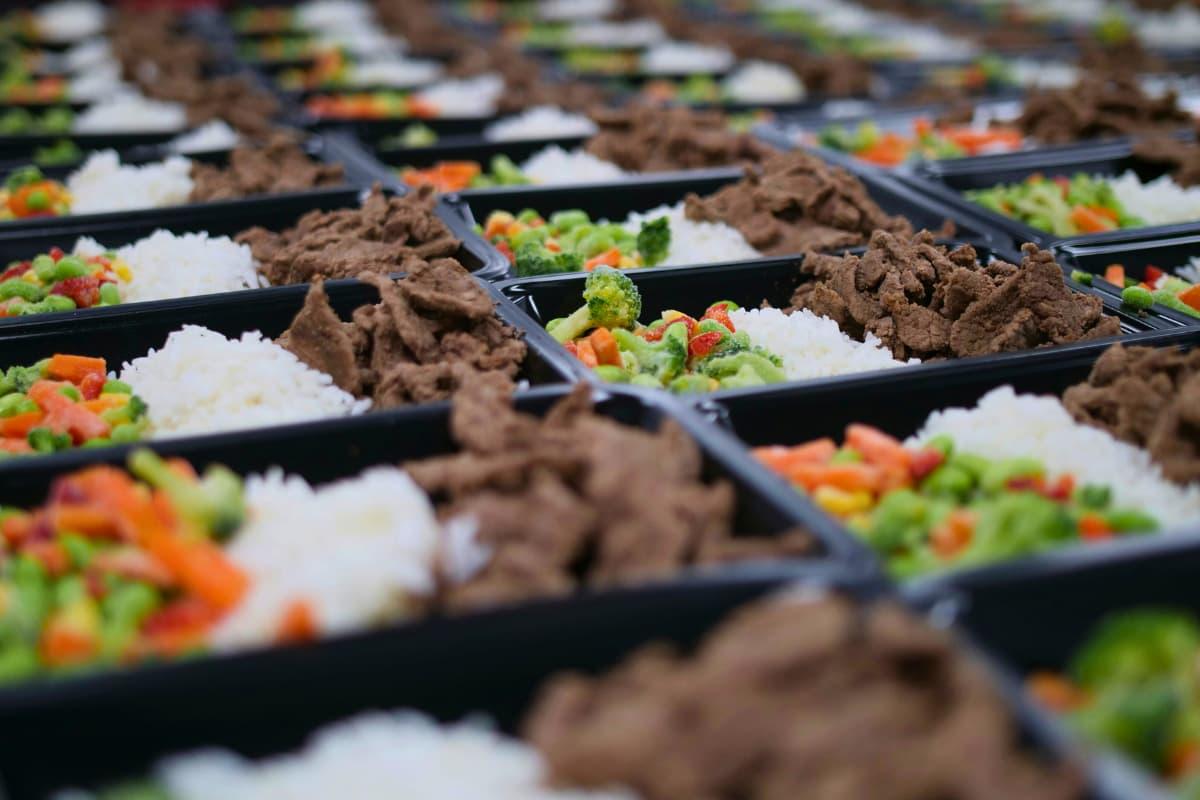The meal prep industry has experienced significant growth in recent years, driven by consumer demand for convenient, healthy, and ready-to-eat meals. However, launching and expanding a meal prep business presents challenges, particularly concerning infrastructure and overhead costs.
Shared-use kitchens, also known as commissary kitchens, offer a practical solution by providing access to fully equipped, licensed commercial spaces without the financial burden of owning or leasing a private facility.
In this article, we'll explore how shared-use kitchens facilitate the growth of meal prep businesses, examining their benefits and operational models.
Understanding shared-use kitchens
Shared-use kitchens are licensed commercial kitchen spaces that multiple food businesses share. These facilities provide essential equipment, storage areas, and regulatory compliance, allowing food entrepreneurs to focus on production without the burden of maintaining a full-scale kitchen.
Key features of shared-use kitchens:
- Cost-effective access: Businesses can rent kitchen space hourly or monthly, significantly reducing startup and operational costs.
- Fully equipped facilities: Access to commercial-grade equipment, including ovens, refrigerators, and prep stations.
- Regulatory compliance: Facilities are licensed and regularly inspected, ensuring adherence to health and safety standards.
- Flexibility: Entrepreneurs can scale their usage based on demand, avoiding the constraints of fixed leases.
Read more: How shared kitchens help reduce overhead costs for food businesses
Benefits for meal prep businesses
As meal prep services grow in popularity, entrepreneurs need reliable infrastructure to meet increasing demand without overwhelming their resources. Shared-use kitchens offer a powerful solution by giving these businesses access to commercial-grade equipment, regulatory support, and scalable production space, all at a fraction of the cost of opening a private facility.
Below, we explore how shared-use kitchens can help meal prep companies reduce expenses, boost efficiency, and accelerate their growth.
1. Reduced overhead costs
Starting a meal prep business involves significant expenses, including facility rental, equipment purchase, and utility management. Shared-use kitchens alleviate these financial burdens by offering a turnkey solution, allowing entrepreneurs to allocate resources to other critical areas like marketing and product development.
2. Scalability
As demand for meal prep services grows, businesses need the flexibility to scale operations. Shared kitchens provide the ability to increase production capacity without the need for substantial capital investment, facilitating seamless growth.
3. Access to professional-grade equipment
High-quality equipment is essential for efficient meal preparation. Shared-use kitchens are equipped with commercial-grade appliances, enabling businesses to maintain consistency and quality in their offerings.
4. Community and networking opportunities
Operating within a shared kitchen fosters a sense of community among food entrepreneurs. This environment encourages collaboration, knowledge sharing, and potential partnerships, contributing to business development.
5. Regulatory support
Navigating food safety regulations can be complex. Shared-use kitchens often provide guidance and support in obtaining necessary certifications and complying with local health codes, streamlining the legal aspects of food production.
Read more: Best partnerships and services to grow your restaurant’s food delivery success
Operational considerations in shared kitchens
While shared-use kitchens offer numerous advantages, they also come with their own set of operational dynamics. Meal prep businesses working in a communal environment must be strategic in managing time, space, and workflow.
From coordinating kitchen schedules to maintaining food safety and cleanliness standards, understanding how to navigate daily operations is essential for long-term success in a shared kitchen setting. Here's what to keep in mind.
Scheduling and time management
Efficient scheduling is crucial in a shared environment. Meal prep businesses must plan production times to ensure access to necessary equipment and avoid conflicts with other users.
Storage solutions
Shared kitchens offer refrigerated and dry storage options. Proper labeling and organization are essential to maintain inventory integrity and comply with health regulations.
Cleanliness and sanitation
Maintaining cleanliness is a collective responsibility. Adhering to sanitation protocols ensures a safe environment for all users and upholds the facility's standards.
Read more: Restaurant location strategy: how to choose the most profitable spot
CloudKitchens: Supporting meal prep businesses
CloudKitchens offers a modern approach to shared-use kitchens, providing delivery-optimized commercial kitchen spaces. Their facilities are designed to help food businesses, including meal prep services, scale efficiently.
Key features of CloudKitchens:
- Turnkey kitchen spaces: Fully equipped kitchens ready for immediate use.
- Integrated technology: Software solutions for order management, delivery integration, and performance analytics.
- Strategic locations: Facilities situated in high-demand areas to maximize delivery efficiency.
- Support services: Assistance with licensing, compliance, and operational logistics.
Shared-use kitchens play a pivotal role in the growth and success of meal prep businesses. They offer a cost-effective, flexible, and supportive environment that enables entrepreneurs to focus on delivering quality meals to their customers.
By partnering with CloudKitchens, meal prep businesses can focus on culinary innovation and customer satisfaction, leaving the complexities of facility management to the experts.
DISCLAIMER: This information is provided for general informational purposes only and the content does not constitute an endorsement. CloudKitchens does not warrant the accuracy or completeness of any information, text, images/graphics, links, or other content contained within the blog content. We recommend that you consult with financial, legal, and business professionals for advice specific to your situation.






